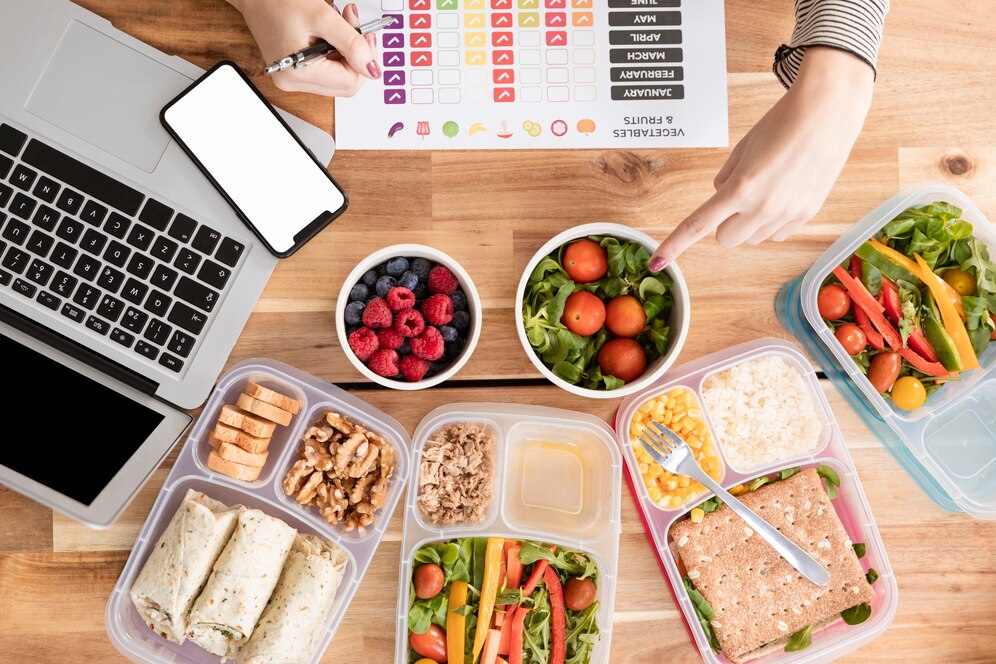In today’s fast-paced world, finding time to cook nutritious meals can be a challenge. Between work, school, family obligations, and social activities, it’s easy to resort to fast food or unhealthy convenience options. However, with a little planning and preparation, you can take control of your diet and set yourself up for success with meal prepping.
Meal prepping is the practice of planning and preparing meals in advance, typically for the week ahead. It involves cooking large batches of food and portioning them out into individual servings that can be easily reheated and enjoyed throughout the week. Not only does meal prepping save time and money, but it also ensures that you have healthy, homemade meals readily available, making it easier to stick to your dietary goals and avoid temptation.
The Benefits of Meal Prepping
Before diving into the practical aspects of meal prepping, let’s take a moment to explore why it’s such a beneficial practice.
- Saves Time: By dedicating a few hours on the weekend or a designated day to meal prep, you can save yourself significant time during the busy weekdays. With meals already prepared, you won’t have to spend time each day deciding what to cook or waiting for food to cook.
- Promotes Healthy Eating: When you have healthy meals prepared and readily available, you’re less likely to resort to unhealthy options like fast food or processed snacks. Meal prepping allows you to control the ingredients and portion sizes, making it easier to stick to your nutritional goals.
- Reduces Stress: Knowing that you have meals prepared ahead of time can alleviate the stress and anxiety associated with mealtime decision-making. Instead of scrambling to throw together a meal at the last minute, you can simply reheat a pre-prepared dish and enjoy a stress-free dinner.
- Saves Money: Eating out or ordering takeout can quickly add up and strain your budget. By meal prepping at home, you can significantly reduce your food expenses and make more economical choices at the grocery store.
- Minimizes Food Waste: Meal prepping allows you to use ingredients efficiently and minimize food waste. By planning your meals in advance and portioning out ingredients accordingly, you can ensure that everything gets used up before it spoils.

Getting Started with Meal Prepping
Now that we’ve covered the benefits of meal prepping, let’s discuss how to get started with this practice.
- Set Aside Time for Planning
The key to successful meal prepping is proper planning. Start by setting aside some time each week to plan your meals. Consider your schedule for the upcoming week, as well as any dietary preferences or restrictions you may have. Once you have a rough idea of what you want to eat, make a grocery list of all the ingredients you’ll need.
- Choose Your Recipes Wisely
When selecting recipes for meal prepping, opt for dishes that are easy to prepare in large batches and can be reheated without sacrificing flavor or texture. Look for recipes that incorporate a variety of nutrient-dense ingredients, including lean proteins, whole grains, and plenty of fruits and vegetables. Casseroles, soups, stews, and stir-fries are all excellent options for meal prepping.
- Stock Up on Containers
Invest in a set of high-quality containers in various sizes to store your prepped meals. Look for containers that are microwave-safe, dishwasher-safe, and durable enough to withstand repeated use. Glass containers are an excellent choice as they are non-toxic and can be easily reheated.
- Batch Cook
Set aside a block of time, such as a Sunday afternoon, to batch cook your meals for the week ahead. Cook large quantities of your chosen recipes and portion them out into individual containers. Label each container with the name of the dish and the date it was prepared to keep track of freshness.
- Store Properly
Proper storage is essential to maintaining the freshness and quality of your prepped meals. Store your containers in the refrigerator for easy access throughout the week. If you’re prepping meals that won’t be consumed within a few days, consider freezing them for later use. Just be sure to allow them to thaw in the refrigerator overnight before reheating.
Tips for Success
To make the most of your meal prepping efforts, consider the following tips:
- Keep It Simple: Don’t feel pressured to prepare elaborate gourmet meals for every day of the week. Focus on simple, nutritious recipes that are easy to prepare and enjoy.
- Mix It Up: Variety is key to preventing mealtime boredom. Rotate your recipes each week to keep things interesting and experiment with different flavors and cuisines.
- Portion Control: Be mindful of portion sizes when prepping your meals to avoid overeating. Use measuring cups or a food scale to ensure accurate portioning.
- Prep Snacks and Breakfasts: In addition to main meals, consider prepping healthy snacks and breakfasts to keep you fueled throughout the day. Overnight oats, yogurt parfaits, and pre-cut veggies with hummus are all excellent options.
- Don’t Forget About Seasonings: Seasonings and sauces can take your meals from bland to delicious. Invest in a variety of herbs, spices, and condiments to add flavor to your prepped dishes.
Conclusion
Meal prepping is a simple yet powerful tool for achieving your health and wellness goals. By dedicating a little time each week to plan and prepare your meals in advance, you can save time, money, and stress while enjoying nutritious and delicious homemade meals. Whether you’re a busy professional, a parent on the go, or simply looking to streamline your mealtime routine, meal prepping can help you take control of your diet and set yourself up for success. So, why wait? Start meal prepping today and reap the benefits of a healthier, happier lifestyle.










